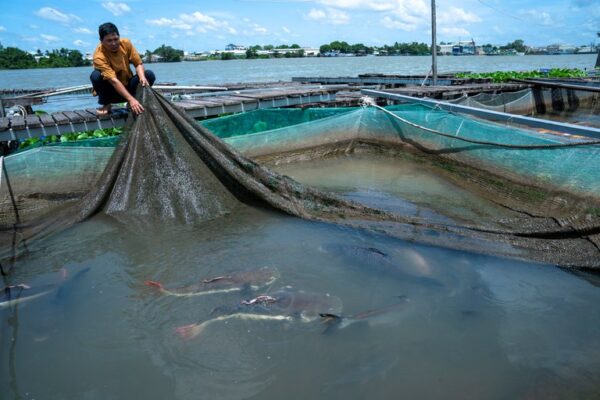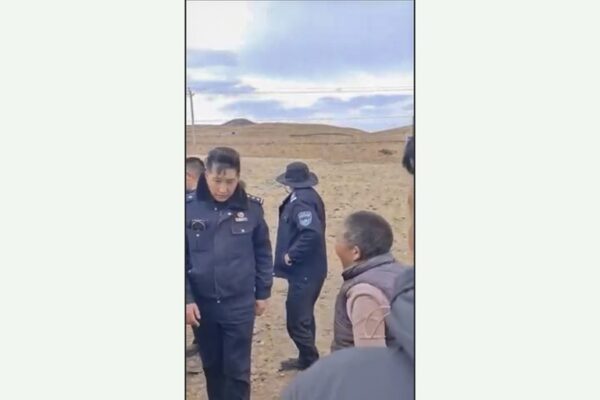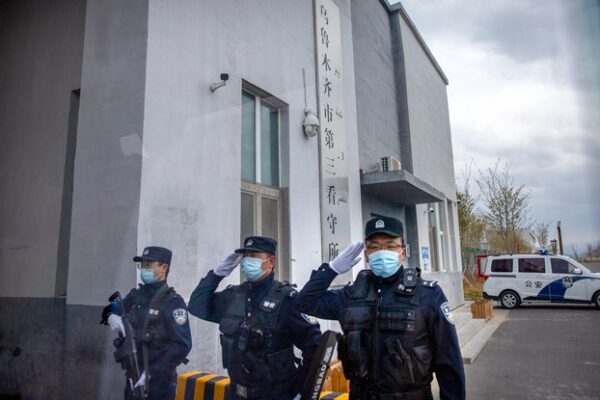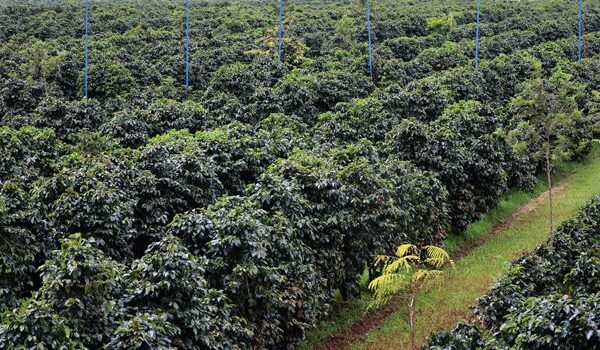U.S. Secretary of State Antony Blinken will travel to China on Wednesday, according to a senior State Department official, in a trip that comes as he and others in Washington accuse Beijing of “fueling” Russia’s war in Ukraine by helping to resupply its military. Blinken will travel to Shanghai and Beijing from Wednesday to Friday, said the official, who spoke on condition of anonymity to discuss the plans ahead of time. The official said he could not yet confirm that Blinken would meet Chinese President Xi Jinping during the visit. The trip will attempt to build on recent diplomatic outreach to Beijing, the official explained, but would also necessitate “clearly and directly communicating [American] concerns on bilateral, regional and global issues” where China and the United States differ on policy. Among other issues, Blinken will raise “deep concerns” about alleged Chinese business support for Russia’s defense industrial base, the crisis in the Middle East and also in Myanmar, the issue of Taiwan and China’s recent “provocations” in the South China Sea, he said. But the official played down the likelihood of results, with many of the differences between Washington and Beijing now deep-seated. “I want to make clear that we are realistic and clear-eyed about the prospects of breakthroughs on any of these issues,” he said. He also demurred when asked if Blinken would meet Xi on Friday, as is rumored. But he said more scheduling details will be released later. “It’s safe for you to expect that he’ll spend considerable time with his counterpart … Foreign Minister Wang Yi,” he said. “We are confident our Chinese hosts will arrange a productive and constructive visit.” ‘Fueling’ the Ukraine war American officials have since last week accused Chinese businesses of keeping Russia’s war effort afloat by exporting technology needed to rebuild the country’s defense industrial base that supplies its military. Speaking to reporters on Friday on the Italian island of Capri ahead of the Group of 7 foreign ministers’ meeting, Blinken said U.S. intelligence had “not seen the direct supply of weapons” from China to Russia but instead a “supply of inputs” required by Russia’s defense industry. The support was “allowing Russia to continue the aggression against Ukraine,” he said, by allowing Moscow to rebuild its defense capacity, to which “so much damage has been done to by the Ukrainians.” “When it comes to weapons, what we’ve seen, of course, is North Korea and Iran primarily providing things to Russia,” Blinken said. “When it comes to Russia’s defense industrial base, the primary contributor in this moment to that is China,” he explained. “We see China sharing machine tools, semiconductors, [and] other dual-use items that have helped Russia rebuild the defense industrial base that sanctions and export controls had done so much to degrade.” Beijing was attempting, Blinken said, to secretly aid Russia’s war in Ukraine while openly courting improved relations with Europe. German Chancellor Olaf Scholz met with Xi in Beijing on Tuesday, and Xi is set to meet French President Emmanuel Macron in Paris next month. “If China purports, on the one hand, to want good relations with Europe,” he said, “it can’t, on the other hand, be fueling what is the biggest threat to European security since the end of the Cold War.” The G-7 group, which also includes Canada, France, Germany, Italy, Japan and the United Kingdom, also released a statement on Friday calling on China “to press Russia to stop its military aggression.” The seven foreign ministers also expressed their concern “about transfers to Russia from business in China of dual-use materials and components for weapons and equipment for military production.” In an email to Radio Free Asia, Liu Pengyu, a spokesman for the Chinese Embassy in Washington, did not deny Blinken’s claims. But he said China “is not a party to or involved in the Ukraine crisis” and that the country’s position on the war is “fair and objective.” “We actively promote peace talks and have not provided weapons to either side of the conflict,” Liu said. “At the same time, China and Russia have every right to normal economic and trade cooperation, which should not be interfered with or restricted.” Not the only tension Blinken’s trip will come amid a slew of other squabbles between the world’s two major powers bubbling since last year’s Xi-Biden talks. In a speech at Vanderbilt University in Nashville, Tennessee, on Thursday, FBI Director Christopher Wray repeated claims he made to Congress earlier this year that Chinese hackers were targeting key U.S. infrastructure and waiting to “wreak havoc” in case of a conflict. On April 11, Biden notably warned Beijing that the United States would come to the aid of Philippine vessels in the South China Sea if they were attacked by China, calling the commitment “ironclad.” On the economic front, U.S. Treasury Secretary Janet Yellen, who herself visited Beijing this month, has slammed Beijing for what she says is over-subsidization of green technology, with cheap Chinese exports crippling development of competing industries worldwide. Xi also expressed concerns to Biden during a phone call on April 2 about a bill that would allow the U.S. president to ban the popular social media app TikTok, which U.S. officials have called a national security threat, if its Chinese parent company does not divest. China, meanwhile, on Friday forced Apple to scrub social media apps WhatsApp and Threads, both owned by Facebook parent company Meta, from its App Store, citing “national security concerns.” Blinken will be joined on his trip by Liz Allen, the under secretary for public diplomacy and public Affairs; Daniel Kritenbrink, the assistant secretary of state for East Asia and the Pacific; Todd Robinson, the undersecretary for narcotics and law enforcement; and Nathaniel Fick, the U.S. ambassador-at-large for cyberspace and digital policy.






